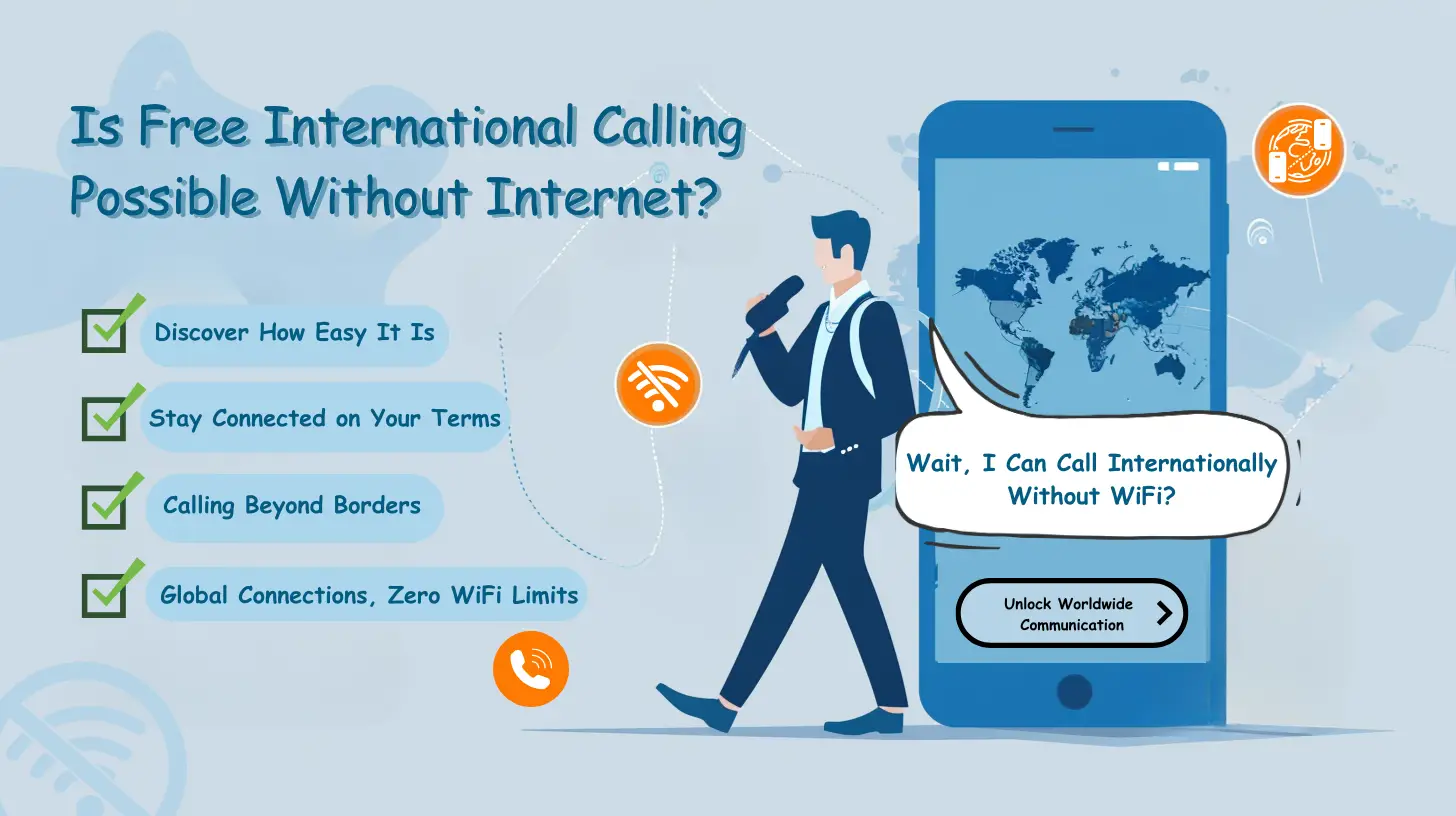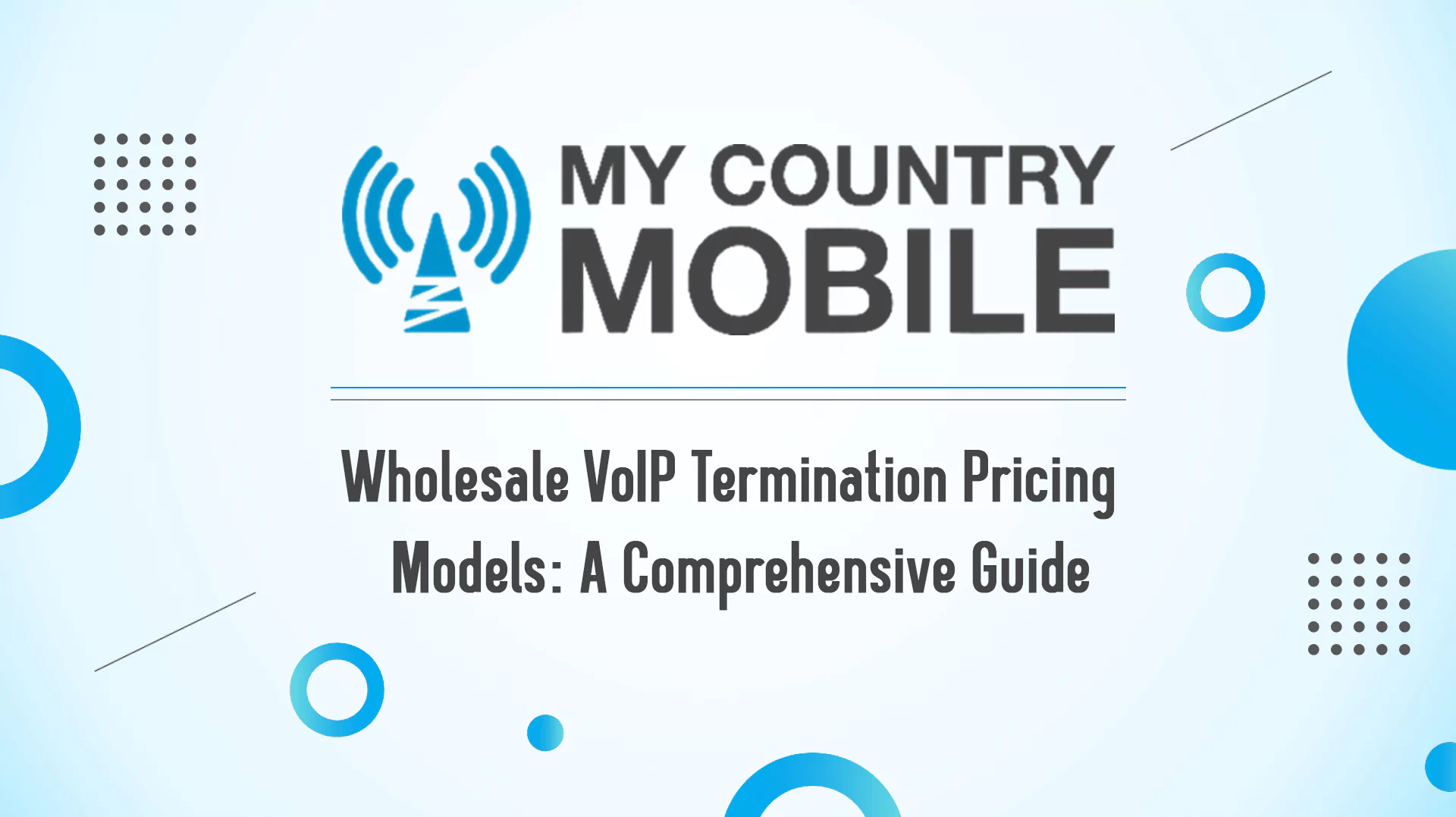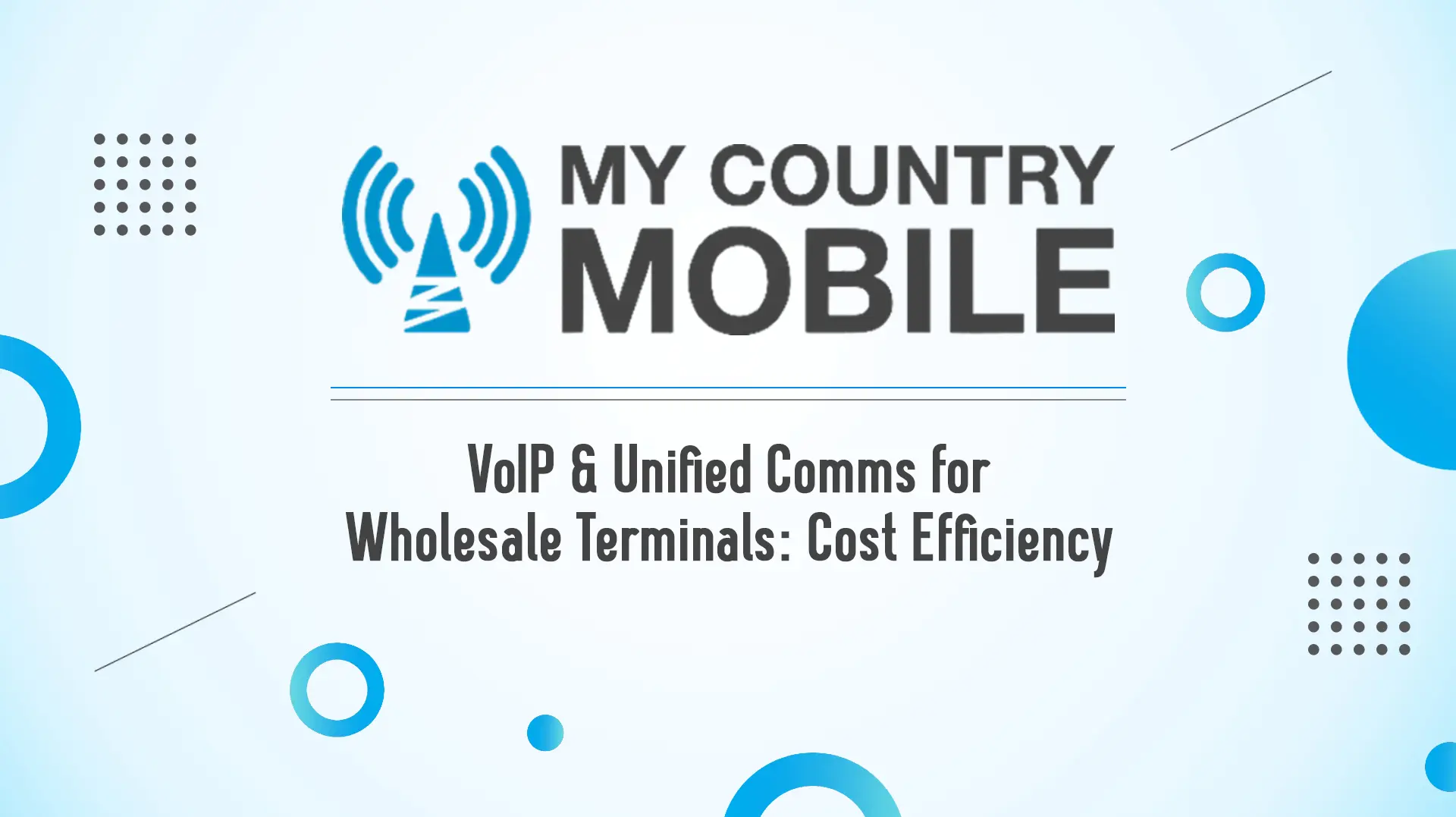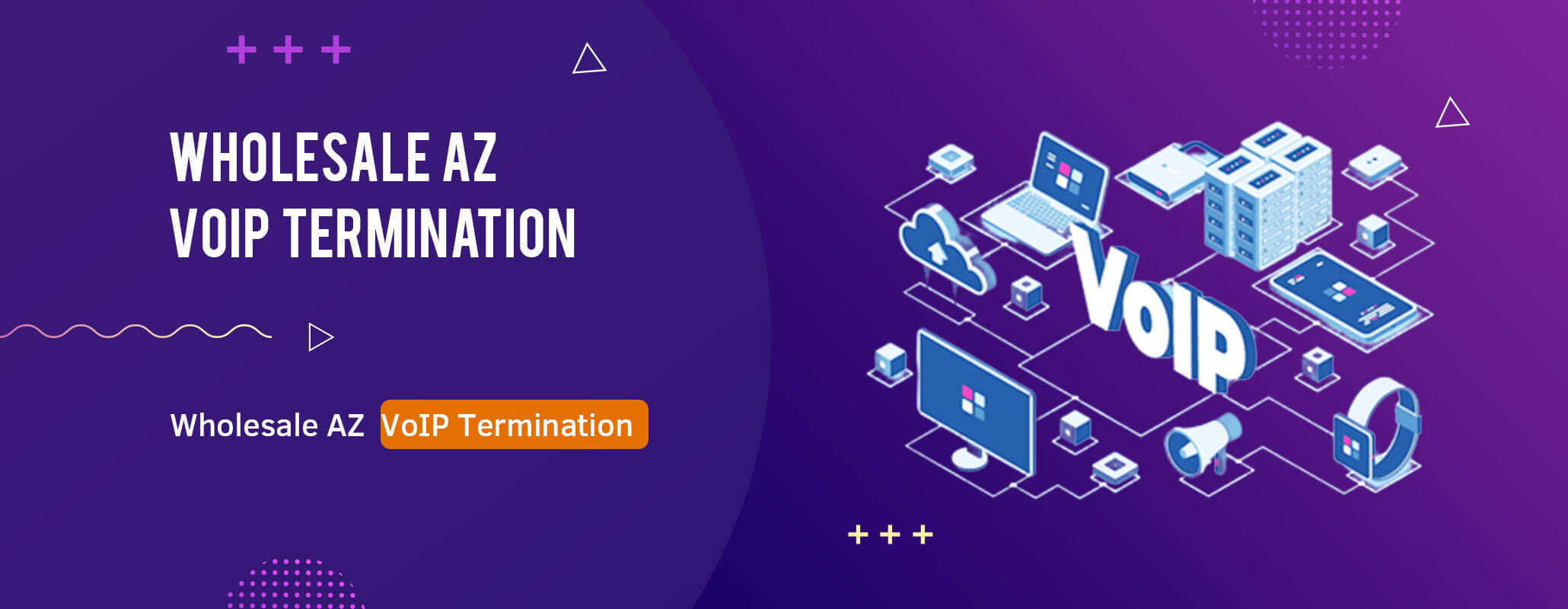
How does Wholesale AZ VoIP Termination work?
Wholesale AZ VoIP Termination works by utilizing IP networks to transmit voice traffic from the source to the intended destination. This process involves converting voice signals into digital packets and routing them through the internet to the destination’s telephony network, where they are converted back into analogue signals for the recipient. This cost-effective method eliminates the need for costly traditional phone lines and allows for efficient global communication.
To set up Wholesale AZ VoIP Termination, businesses need the necessary equipment and software. This may include IP phones, softphones, or VoIP gateways. Configuration and integration of the VoIP system with the existing infrastructure are necessary to establish seamless communication. Testing and troubleshooting the setup are crucial to identify and address any potential issues.
Key takeaways:
- Low-Cost Wholesale VoIP Termination provides global reach: It enables businesses to connect with customers worldwide, expanding their market reach and facilitating international communication.
- Low-Cost Wholesale Termination offers cost efficiency: It allows businesses to make international calls at reduced rates, saving on communication expenses and improving overall cost-effectiveness.
- Low-Cost Wholesale Voice Termination offers scalability: Businesses can easily scale their communication infrastructure to accommodate growing needs without significant investment in hardware or infrastructure.

What is Wholesale VoIP Termination?
Wholesale VoIP termination, also known as Wholesale Voice over Internet Protocol termination, is the process of transferring VoIP calls from one telecommunications provider to another. This service allows businesses and call centers to connect their customers’ calls to different networks and destinations worldwide. It is a cost-effective and reliable communication solution that offers several advantages.
One of the main benefits of wholesale VoIP termination is that it enables providers to offer competitive rates by leveraging bulk pricing from other carriers. This results in significant cost savings for businesses. It allows for efficient call routing and network redundancy, ensuring high call quality and reliability.
When considering wholesale VoIP termination services, it is important to evaluate the reliability and quality of the carrier’s network. Look for providers with a proven track record and strong network infrastructure to ensure seamless call routing. It is also essential to consider the pricing structure and flexibility of the service. Choose providers that offer competitive rates and customizable plans to meet your specific communication needs.
The history of wholesale VoIP termination dates back to the early 1990s when VoIP technology emerged alongside the popularity of the internet. Its breakthrough came in the early 2000s with improved internet connectivity. As internet speeds increased, businesses began to realize the advantages of using VoIP for communication, including cost savings and flexibility. This led to the rise of wholesale VoIP termination services, which offered affordable international calling rates to businesses of all sizes.
Over the years, wholesale VoIP termination has evolved with advancements in technology and the entrance of more carriers into the market. This has resulted in even more competitive rates and improved call quality. Today, Wholesale VoIP termination is an essential communication tool for businesses worldwide.
How does Wholesale VoIP Termination Work?
Wholesale VoIP termination is the process of routing voice calls from one network to another, enabling businesses to connect with customers around the world. It is important for companies looking to expand globally and improve cost efficiency to understand the functioning of this service.
- Call Routing: Wholesale VoIP termination involves guiding voice call traffic from one network to another. These calls are directed to a VoIP carrier, which acts as an intermediary and routes them to the destination network, ensuring seamless connectivity.
- SIP Protocol: VoIP termination relies on the Session Initiation Protocol (SIP) for call signalling and control. SIP enables networks to communicate and establish connections, facilitating efficient call routing.
- Carrier Selection: VoIP termination providers have partnerships with multiple carriers worldwide. They utilize routing algorithms to select carriers based on factors such as call quality, cost, and network capacity, ensuring cost-effective and efficient services.
- Least Cost Routing: Wholesale VoIP termination providers utilize a technique called least cost routing, which involves selecting carriers with the lowest rates for specific destinations, resulting in optimal cost efficiency.
- Quality Assurance: Wholesale VoIP termination providers prioritize call quality and reliability. They continuously monitor performance using quality metrics like Average Seizure Ratio (ASR) and Post Dial Delay (PDD).
By comprehending the functioning of wholesale Voice termination, businesses can make informed decisions while selecting providers and optimizing communication systems. Factors to consider include network coverage, pricing, customer support, and quality metrics. To set up wholesale VoIP termination, businesses need to meet specific equipment and software requirements, configure and integrate their systems with the provider’s infrastructure, and perform thorough testing and troubleshooting for smooth operations.
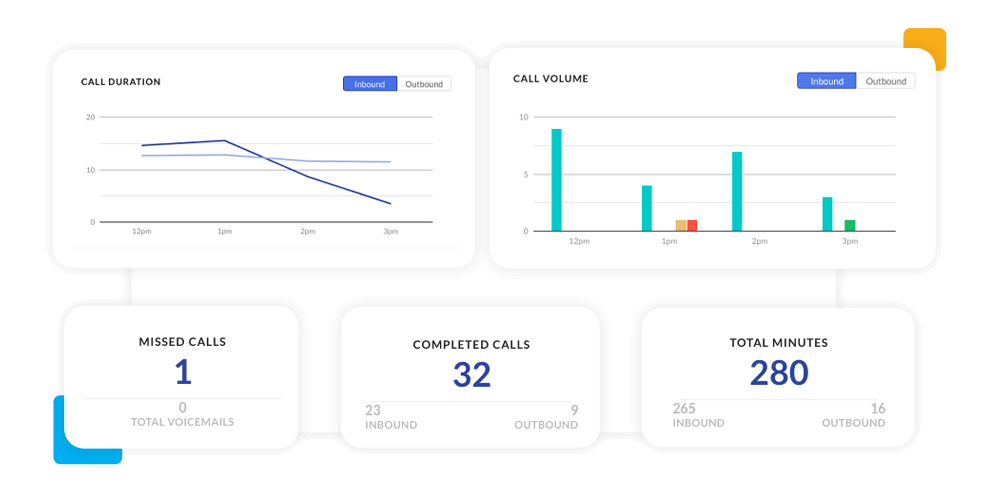
Benefits of Low-Cost Wholesale VoIP Termination
Discover the incredible advantages of low-cost wholesale VoIP termination. From expanding global reach to achieving cost efficiency, scalability, and unmatched quality and reliability, this section explores the wide array of benefits associated with this powerful communication solution. Get ready to dive deep into the world of VoIP and uncover how it can revolutionize your communication strategies. It’s time to unlock the true potential of your business and take it to new heights.
1. Global Reach
Global reach is a crucial advantage offered by low-cost wholesale Voice termination. It allows businesses to effortlessly connect with customers and partners around the world, expanding their reach and discovering new opportunities for growth. Here are several reasons why global reach holds great significance:
- Accessible markets: Global reach provides businesses with access to diverse markets. This allows them to tap into new customer bases and explore untapped opportunities in different countries and regions.
- Increased customer base: By expanding globally, businesses can reach a larger customer base. By targeting customers in different locations, they can attract more customers and ultimately increase their revenue.
- Business expansion: Global reach empowers businesses to expand beyond their domestic market. They can establish a presence in multiple countries and grow their brand internationally, attracting more customers and gaining a competitive edge.
- Partnerships and collaborations: Global reach facilitates partnerships and collaborations with businesses worldwide. This collaborative effort can lead to new innovations, knowledge sharing, and access to new resources and markets.
To achieve global reach through low-cost VoIP termination, businesses must partner with a reliable provider that offers wide network coverage. Factors such as network reliability, call quality, and the provider’s ability to handle international calls should be carefully considered. By selecting the right provider and maintaining a robust VoIP infrastructure, businesses can effectively leverage global reach to their advantage and unlock new growth opportunities.
2. Cost Efficiency
Cost efficiency is crucial for wholesale VoIP. Here are key points to understand about the cost efficiency of this communication solution:
- Lower communication costs: VoIP significantly reduces communication costs compared to traditional telephony services. By using the Internet for calls, businesses can avoid expensive long-distance charges and reduce monthly phone bills.
- Pay-per-use pricing model: VoIP uses a pay-per-use pricing model, allowing businesses to pay only for the minutes they use. This flexibility optimizes costs by eliminating the need to pay for unused minutes and makes budgeting and predicting expenses easier.
- Economies of scale: Wholesale VoIP termination providers offer discounted rates for high-volume usage. As businesses scale up their communication needs, they can take advantage of these economies of scale to further reduce costs. Bulk purchasing of minutes leads to significant savings and better cost efficiency.
- No infrastructure investment: VoIP operates over the internet, eliminating the need for expensive infrastructure. This results in lower upfront costs and maintenance expenses compared to implementing traditional phone systems that require costly hardware and dedicated lines.
- Reduced maintenance and support costs: VoIP systems require less maintenance compared to traditional phone systems. Businesses don’t need to maintain physical equipment or deal with complex wiring. Technical support for VoIP services is often more accessible and cost-effective compared to traditional phone providers.
- Integration with existing systems: VoIP can integrate with existing communication systems like customer relationship management (CRM) platforms. This integration eliminates the need for additional software and streamlines business processes, leading to increased efficiency and cost savings.
- International cost savings: Wholesale VoIP termination enables cost-effective international communication. Calls between multinational company branches or international clients can be made at a fraction of the cost of traditional international calls. This cost efficiency enhances the global reach and enables businesses to expand without significant communication expenses.
Considering the cost efficiency of wholesale VoIP termination is essential for businesses looking to optimize their communication expenses while enjoying the benefits of a reliable and scalable communication solution.
3. Scalability
Scalability is a critical factor to consider when selecting a wholesale Voice termination provider. It pertains to the provider’s ability to handle increasing demands and accommodate growth. A provider that offers scalable solutions can easily adapt to business needs and ensure seamless communication.
Key Features to Consider:
- Capacity for Growth: It is important to choose a dependable wholesale Voice termination provider that possesses the necessary infrastructure and resources to support business expansion. This includes being able to handle higher call volumes and increased traffic. By having this capability, the provider can prevent any limitations or service interruptions as the business grows.
- Scalable Pricing Models: Opt for a provider that offers flexible pricing models that align with the specific needs of your business. This will enable you to adjust your service plans as call volumes fluctuate, ensuring that you only pay for the essential resources and ultimately saving costs in the long run.
- Redundancy and Failover Mechanisms: A scalable VoIP termination solution should have backup systems and failover mechanisms in place. This guarantees automatic switching to backup systems during network outages or hardware failures, minimizing any downtime and ensuring uninterrupted service.
- Integration with Existing Infrastructure: A scalable provider should seamlessly integrate with your existing telephony infrastructure. This will allow for easy expansion without requiring extensive changes or disruptions to your current setup. Ensuring compatibility with various IP PBX systems and protocols is crucial to achieving a smooth integration.
Considering the aspect of scalability is essential for achieving long-term success when selecting a wholesale termination provider. It allows for business growth and adaptation without any constraints, ensures cost-efficiency, and provides reliable communication services. By choosing a provider that possesses the mentioned features, you can future-proof your communication infrastructure and effectively meet the evolving needs of your business.
4. Quality and Reliability
Quality and reliability are crucial when selecting a wholesale termination provider. An esteemed provider guarantees steady and consistent service that fulfils your communication requirements. Take into account the following aspects:
- Call Quality: A provider should offer outstanding call quality with minimal interruptions or delays for crystal-clear and dependable communication.
- Service Reliability: A trustworthy provider should possess a strong infrastructure and redundant systems to ensure maximum uptime, minimizing service outages.
- Network Redundancy: A provider with multiple network connections and redundant hardware can effectively handle fluctuations in traffic, enhancing network reliability.
- Service Level Agreement (SLA): A comprehensive SLA outlines the provider’s commitments and guarantees concerning quality and uptime. It provides a means of recourse for service failures.
- Technical Support: A responsive and knowledgeable technical support team is vital for promptly resolving issues. Seek out providers that offer 24/7 support and various communication channels.
- Monitoring and Analytics: Comprehensive monitoring and analytics tools offered by a provider assist in assessing the performance of VoIP services, enabling proactive management and troubleshooting.
By considering these factors, you can ensure that your wholesale Voice termination service delivers the quality and reliability necessary for seamless communication. Remember to diligently research and evaluate potential providers before making a decision.
Choosing a Provider for VoIP Termination
When selecting a provider for VoIP termination, it’s essential to make an informed decision. Let’s explore the key factors to consider – network coverage, pricing and billing, customer support, and quality metrics. With a wide range of options available, understanding these aspects will ensure seamless communication across global networks. So, buckle up as we dive into the world of low-cost VoIP termination and find the perfect fit for your business needs.
Factors to Consider
When selecting a wholesale termination provider, there are several factors to consider. One of the most important factors is network coverage. It is crucial to ensure that the provider has a wide and reliable network that covers all the required areas. This will ensure that VoIP calls reach their intended recipients without any issues. Another factor to consider is pricing and billing. It is advisable to compare pricing packages to find the most cost-effective solution. It is also important to understand the billing process and be aware of any additional fees in order to avoid any surprises.
Customer support is another important aspect to consider. It is recommended to choose a provider that offers responsive and knowledgeable customer support. This will be helpful in case of any technical issues or inquiries that may arise. It is essential to look for a provider that offers high-quality audio and reliable connections. This will ensure that the VoIP calls are clear and uninterrupted, providing a positive experience. Considering these factors will help in selecting the most suitable wholesale termination provider.
1. Network Coverage
Network coverage is an essential aspect to consider when searching for VoIP Termination. Here are some key points to keep in mind:
- Geographical reach: It is crucial to choose a provider with extensive network coverage for effectively routing calls globally.
- Regional coverage: Look for a provider that has a strong presence in the specific regions where you require connectivity. This ensures reliable call quality and low latency.
- Network reliability: It is important to ensure that the provider has a robust network infrastructure with redundant systems in place to minimize downtime and guarantee uninterrupted service.
- Interconnection agreements: Check if the provider has established agreements with major telecom carriers. This allows for seamless call routing and improved connectivity.
- Quality of service: Consider a provider that prioritizes network connectivity and offers high-quality voice transmission. Look for features such as high-definition (HD) voice for crystal-clear calls.
Fact: A recent study highlights that network coverage is one of the primary factors that businesses consider while selecting a wholesale VoIP termination provider.
2. Pricing and Billing
VoIP termination pricing and billing greatly affect the efficiency of costs. It is important to consider the structure of pricing and billing from providers.
Price models include:
– Flat Rate: This offers a fixed rate for calls, regardless of the destination or duration. It provides a simple and predictable billing process.
– Per Minute: Charges are based on the duration of the call, and rates may differ for various destinations. This model is suitable for businesses that experience fluctuating call volumes.
– Volume-Based: This model offers discounts based on the volume of minutes used, which is beneficial for businesses with high call volumes. The more minutes used, the lower the cost per minute.
– Committed Usage: This model provides discounted rates for businesses that commit to a certain volume of minutes each month. It can lead to significant savings for businesses with consistent call volumes.
– Add-On Fees: It is important to consider additional fees such as setup fees, termination fees, or monthly service fees as they impact the overall cost.
When evaluating pricing and billing options, take into account the call volume, destination preferences, and budget limitations. Carefully review the provided pricing details and compare them with your specific needs. Analyze the fine print to identify any potential hidden costs or fees and make an informed decision that aligns with your budget and requirements.
3. Customer Support
Customer Support plays a pivotal role when selecting a VoIP termination provider. Here are some vital factors to keep in mind when making your decision:
- Availability: It is essential to look for a company that provides 24/7 customer support to ensure that assistance is always readily available.
- Communication channels: Opt for a provider that offers multiple contact options such as phone, email, and live chat for your convenience.
- Response time: Select a provider that guarantees prompt and efficient assistance by examining their average response time.
- Expertise: Make sure that the customer support team is knowledgeable and experienced in handling VoIP-related queries and problems.
- Problem resolution: Evaluate the provider’s track record in addressing customer issues by checking customer reviews and ratings.
- Training and resources: Seek out providers that invest in training their customer support team and offer comprehensive resources for self-help.
- Customer feedback: Positive reviews and testimonials serve as indicators of a reliable and helpful support team.
- Satisfaction guarantee: Consider providers that offer a satisfaction guarantee, demonstrating their commitment to resolving any issues to your satisfaction.
By taking these factors into consideration, you can choose a VoIP termination provider that not only delivers high-quality services but also provides exceptional customer support whenever you require it. Customer support is vital for ensuring a seamless and efficient communication system, making it a crucial aspect to consider when selecting a VoIP provider.
4. Quality Metrics
Quality metrics play a vital role in evaluating VoIP termination providers. These metrics enable businesses to make informed decisions by providing valuable insights. Various important quality metrics to consider are outlined below.
- Call Completion Rate: It refers to the percentage of successful calls made through the VoIP termination service. A higher completion rate indicates superior call quality and a reduced number of dropped calls.
- Average Call Duration: This metric helps determine the average length of each call. By analyzing the average call duration, businesses can assess the consistency and reliability of connections.
- Call Setup Time: It measures the time required to establish a connection between parties. Shorter setup times contribute to a better user experience as it ensures prompt communication initiation.
- Network Latency: This metric represents the delay in data transmission between callers. Low network latency plays a crucial role by eliminating delays and lag, allowing real-time communication.
- Jitter: Jitter refers to the variation in delay between transmitted data packets. Maintaining low jitter is essential for ensuring smooth voice quality during calls.
- Packet Loss: It represents the percentage of lost data packets during transmission. High packet loss can negatively impact call quality, resulting in choppy or distorted voice communication.
- Mean Opinion Score (MOS): MOS is a subjective measure used to rate call quality on a scale ranging from 1 to 5. Higher scores indicate better voice quality during calls.
When considering quality metrics, it is crucial to assess the adherence of VoIP termination providers to industry standards and regulations. Look for providers that comply with SIP (Session Initiation Protocol) standards and prioritize call security.
To ensure accuracy in selecting the right provider, it is advisable to compare the performance of different providers and consider specific requirements. Gathering feedback from customers and reading reviews can also provide valuable insights.
By incorporating these quality metrics into the decision-making process, businesses can confidently select a VoIP termination provider that ensures reliable and high-quality voice communications for their organization.
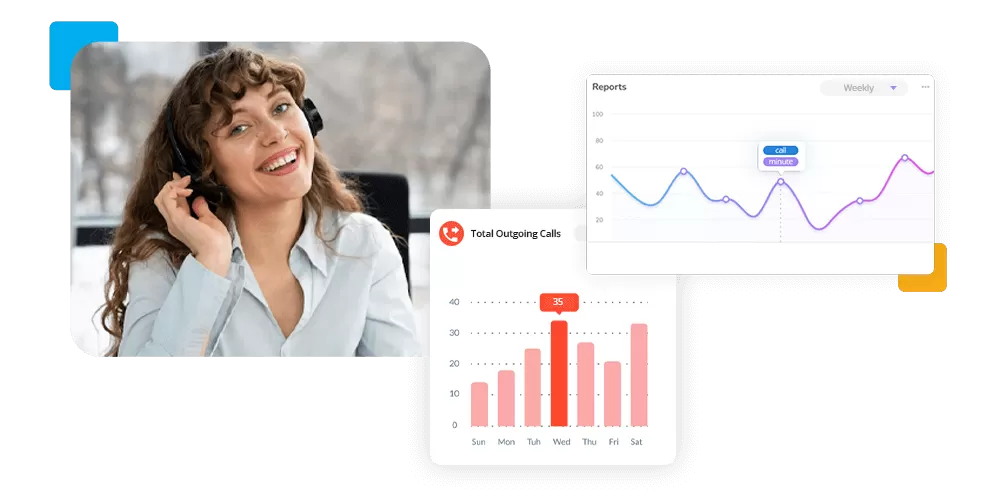
How to Set Up Wholesale AZ VoIP Termination
Looking to set up AZ VoIP termination? You’re in the right place! In this section, we’ll dive into the nitty-gritty of how to get started. From the necessary equipment and software requirements to configuration and integration, and finally testing and troubleshooting, we’ve got you covered. So, buckle up and get ready to discover the step-by-step process of establishing wholesale termination for global reach. No more guesswork – let’s make it happen!
1. Equipment and Software Requirements
To set up wholesale termination, you will need specific equipment and software. This includes a VoIP phone, a router, an IP PBX, a softphone, and a VoIP gateway.
The VoIP phone is essential for making and receiving calls over an IP network. The router connects your VoIP phone to the internet and manages data traffic. The IP PBX connects internal calls and routes calls to the appropriate destination. The softphone is a software application that enables you to make calls using your computer or mobile device. The VoIP gateway facilitates the connection between traditional telephone lines and VoIP networks.
You will also require specific software for your VoIP setup. This includes VoIP Provider Software, SIP Software, IP PBX Software, and Network Monitoring Software. The VoIP Provider Software is provided by your VoIP service provider and allows you to configure your VoIP phone and access features such as call forwarding and voicemail. SIP Software is necessary to establish and manage real-time communications over IP networks. IP PBX Software is essential for configuring and managing the PBX features. Network Monitoring Software helps you track and troubleshoot any issues with your VoIP network.
Setting up wholesale termination necessitates both hardware and software. Before implementing this service, ensure you have the necessary equipment and software in place. Take the time to evaluate your requirements based on your business needs, network infrastructure, and compatibility with your chosen VoIP service provider. It is also important to regularly update your software and equipment for optimal performance and security.
Choosing the appropriate VoIP equipment and software is crucial for reliable and cost-effective communication. Conduct thorough research and select high-quality and compatible solutions that meet your specific requirements.
If tables are present, keep them intact.
2. Configuration and Integration
The configuration and integration process is of utmost importance when setting up Wholesale Termination. To ensure a seamless communication experience, follow these steps:
- Carefully select a reliable VoIP gateway that aligns with your business requirements. Consider factors such as scalability, capacity, and compatibility with your existing telecommunication infrastructure.
- Connect the chosen VoIP gateway to your IP network or PBX system using either Ethernet or T1/E1 interfaces. It is crucial to ensure proper cabling and connectivity for optimal performance.
- Proceed to configure the network settings through the gateway’s interface. This includes specifying IP addressing, subnet mask, default gateway, and DNS servers. These settings facilitate communication with other devices on the network.
- Establish connections with the SIP service provider or VoIP carrier by creating SIP trunks on the gateway. Configure essential parameters such as the provider’s SIP server address, authentication credentials, and codecs.
- Take advantage of the VoIP gateway’s capability to define dial plans. This allows you to have control over call routing and number manipulation. Specify inbound and outbound call rules, taking into account prefixes, area codes, and international dialling patterns.
- Enhance the security of your VoIP infrastructure by enabling various protective measures. These include encryption, access control, and firewall rules. These security features safeguard against unauthorized access and potential threats.
- After completing the configuration, conduct comprehensive testing to ensure successful call-making and receiving. In the event of any issues, troubleshoot them promptly and closely monitor call quality and network performance.
Remember, it is recommended to consult with a certified VoIP professional or seek assistance from your VoIP service provider to ensure the correct and efficient configuration and integration of your system. Their expertise can optimize your system’s performance and reliability.
3. Testing and Troubleshooting
When setting up wholesale VoIP termination, testing and troubleshooting are crucial. Follow these steps to effectively test and troubleshoot your VoIP termination:
- Perform connectivity tests: Check the connectivity between your equipment and the VoIP provider’s network. Ensure all connections are established and there are no network issues.
- Check call quality: Make test calls to different numbers and assess voice clarity, latency, and potential distortions or dropouts.
- Test compatibility: Verify full compatibility of your equipment and software with the VoIP system. Ensure proper functioning of interfaces and protocols.
- Monitor call stability: Continuously monitor the stability of your VoIP calls. Pay attention to call drops, delays, or interruptions. Track performance over time to identify patterns or recurring issues.
- Check for latency and delay: Measure round-trip delay and latency in your VoIP calls to identify potential network bottlenecks.
- Assess network bandwidth: Test the available network bandwidth to ensure it is sufficient for VoIP traffic volume. Insufficient bandwidth can lead to poor call quality and dropped calls.
- Debug and troubleshoot issues: Promptly debug and troubleshoot any issues that arise during testing. Use diagnostic tools and logs to identify the root cause and resolve the problem.
- Continuously monitor performance: Regularly monitor the performance of your VoIP termination. Keep an eye on call quality, network stability, and potential issues to proactively address problems and maintain a high level of service.
Following these testing and troubleshooting steps ensures optimal functioning and high-quality calls for your wholesale termination.
Remember, thorough testing and proactive troubleshooting are essential for a seamless VoIP experience.
Some Facts About “Low-Cost Wholesale VoIP Termination for Global Reach | My Country Mobile”:
- ✅ My Country Mobile offers low-cost wholesale VoIP termination services. They provide cost-effective telecom services to businesses by offering discounted rates compared to traditional telecom technology.
- ✅ Wholesale VoIP Termination by My Country Mobile provides businesses and individuals with a reliable and secure way of communication. It allows access to voice and data services, including video conferencing and online collaboration.
- ✅ Wholesale VoIP Traffic Volume by My Country Mobile allows businesses to negotiate with telecom operators and make significant cost savings. Businesses can quickly expand their VoIP network with additional capacity as needed.
- ✅ My Country Mobile offers robust, scalable capacity to handle large call volumes efficiently and cost-effectively. They provide toll-free numbers, international calls, and scalable calling abilities.
- ✅ My Country Mobile is one of the largest wholesale VoIP providers and offers a wide range of plans and user-friendly administration interfaces. They provide global coverage, customization options, and value for money.
















